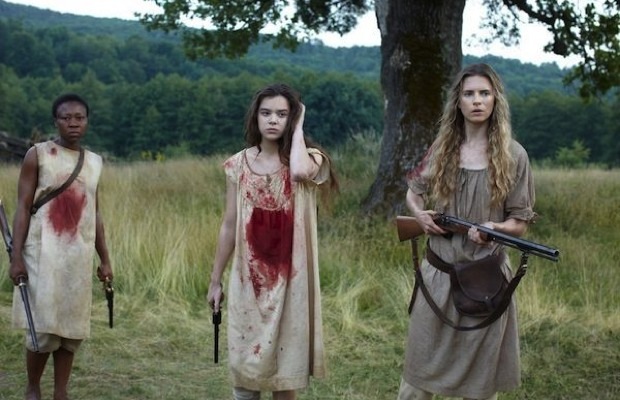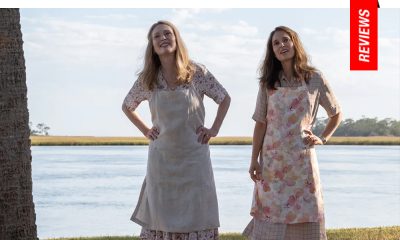Reviews
The Keeping Room | Review
Ruminations: Barber’s Sophomore Effort Brings the War Home
Director Daniel Barber returns with sophomore effort The Keeping Room, his first film since the Death Wish derivative Harry Brown (2009) starring Michael Caine. Based on Julia Hart’s screenplay, Barber takes us back to the waning days of the Civil War for this homestead invasion thriller which poses intriguing intersections of class, race, and the struggle for domination and survival. But though the presentation is compelling, particularly through its visual strengths and effective editing (often glossing over weaker moments in the script prolonging its formulaic third act), it often seems as if the film isn’t exploring its own potential, meekly elegiac in tone as it teases notions of female agency amidst an apathetic and violent backdrop.
Augusta (Brit Marling) and her younger sister Louise (Hailee Steinfeld) have been left without the comfort of men on their South Carolina homestead as the Civil War rages on. Their slave Mad (Muna Otaru) has taken on a more important presence in the household, now on equal footing with the sisters in an effort to survive and gather resources efficiently. It’s something that rather angers Louise, who insistently continues to demean Mad. Augusta is more realistic, treating Mad as an ally, using the woman for her expertise in the ways of the world, such as a resource concerning what sex feels like. When Louise is bitten by a raccoon, Augusta must flee to the nearest town for medicine. She finds some, but also attracts the attention of Moses (Sam Worthington) and Henry (Kyle Soller), Yankee deserters who’ve murdered innocent black folks in their wake before taking over control of the local saloon. They’re immediately drawn to Augusta’s beauty, and she barely escapes a tense face-off with the surly brutes. While she makes it back to treat Louise in time, the men track Augusta, hoping to capture and have their way with her.
Barber and Hart touch on problematic racial tensions in intriguing ways, though the weight of the subject seems only lightly explored, especially as the film’s genre elements creep in during the second act. The equality bestowed upon Mad thanks to Augusta’s ‘generosity’ is compelling, hinting at the possibilities of peace outside the violent aggression of patriarchy. Initially, this compelling trio seems poised for greater characterization, especially from Muna Otaru who seems to be borrowing all her character tics from the Butterfly McQueen catalogue. Marling, as usual, is a striking screen presence, so it’s too bad her strong willed Augusta gets lost in this battle of the sexes home invasion thriller that isn’t too far removed from something of more generic nature like Katie Aselton’s Black Rock (2012).
Barber reunites with German DoP Martin Ruhe, who worked on Anton Corbijn’s first two features, presenting a lush countryside speckled by moments of violence, cruelty, and an eventual claustrophobic menace in the confines of the finale. A bit more characterization shared between the sisters or even the murderous antagonists would have enhanced the dramatic tension, while several moments feel a bit out of place, like a late monologue from Otaru about personal monsters. Intriguing but sometimes ineffective, The Keeping Room doesn’t seem to have enough narrative strength, much less an overflow, to justify its own title.
★★½/☆☆☆☆☆
Los Angeles based Nicholas Bell is IONCINEMA.com's Chief Film Critic and covers film festivals such as Sundance, Berlin, Cannes and TIFF. He is part of the critic groups on Rotten Tomatoes, The Los Angeles Film Critics Association (LAFCA), the Online Film Critics Society (OFCS) and GALECA. His top 3 for 2021: France (Bruno Dumont), Passing (Rebecca Hall) and Nightmare Alley (Guillermo Del Toro). He was a jury member at the 2019 Cleveland International Film Festival.
































